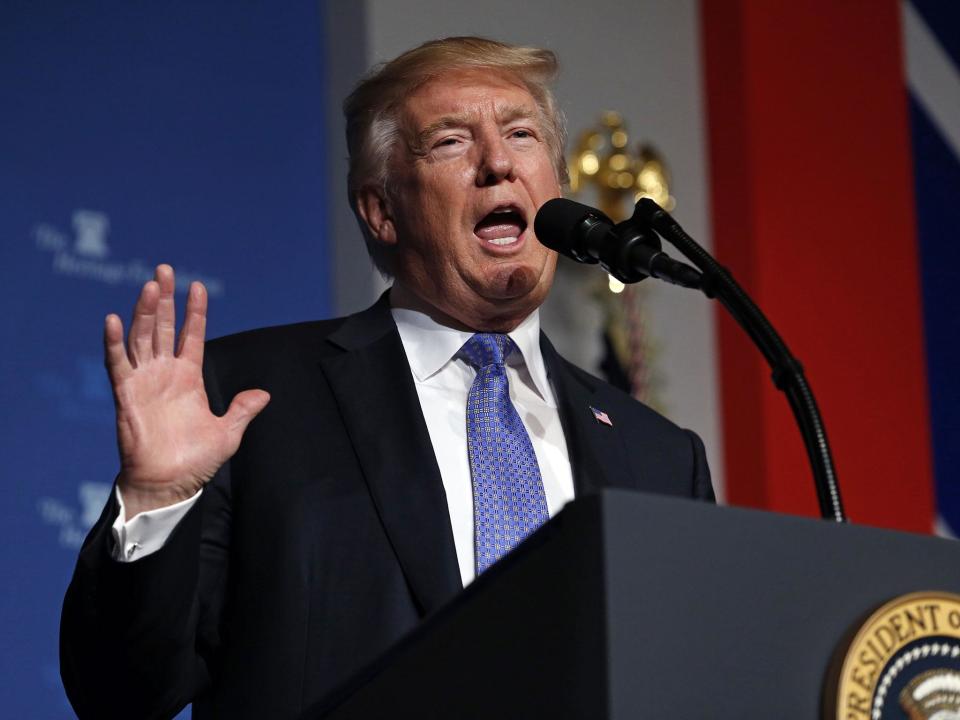Trump, Brexit and the rise of the far-right risk harming global innovation, companies say

Rising economic nationalism, embodied by Donald Trump, Brexit and resurgent far-right movements across Europe, is causing companies to reconsider investing in research and development, according to research by PwC.
Tighter regulations around visas, immigration, and protectionist policies governing the sharing of knowledge and technology, could threaten global innovation, a survey of research and development (R&D) leaders from the world’s biggest companies found.
Almost a quarter of global firms surveyed said they had already felt pressure to change their approach to innovation in their home country because of a rise in economic nationalism. Survey participants saw the US, UK, and China as being most at risk from protectionist policies, while Canada, Germany, and France were seen as most likely to benefit.
The 1,000 companies analysed spent more than $700bn (£530bn) on R&D in the last financial year, a 3 per cent rise on the year before, the annual report found.
But a third of R&D professionals said that they have already found it more difficult to find or retain skilled staff because of economic nationalism.
UK companies have warned that Brexit could trigger a skills crisis as the flow of workers from the EU begins to slow, while those that are already in the country begin to leave in greater numbers.
In the US, Silicon Valley’s technology companies – including Google, Facebook and Microsoft – have united to call for continued access to talent from around the world in the face of President Trump’s ban on immigrants from some Muslim majority countries.
More than half of the R&D leaders polled said they believe a general move towards protectionism around the world would lead to at least a moderate or significant impact on their company’s research efforts.
The study analysed spending by the 1,000 publicly listed companies with the biggest outlay on R&D, of which thirty-six were British. UK firms invested a total of $23bn between them, or just over 3 per cent of the world’s total. British firms spent just 3.8 per cent of their revenue on R&D - less than the global average of 4.5 per cent.
Healthcare companies account for half of the UK’s R&D spend. The automotive industry, along with aerospace and defence are the next biggest R&D spenders, investing 21 per cent and 7 per cent of the total respectively.
Marco Amitrano, UK consulting leader at PwC, commented: “Organisations that operate in and around the UK are rightly watching the ongoing Brexit negotiations closely and, as greater clarity emerges, that will drive decisions on investment bets to support medium and long-term plans.
“Innovation is essential for the future success of any economy, but here in the UK, the development of policy to maintain companies’ ability to bring talent from abroad will be an area of critical debate and importance for business. We need to make sure that stronger borders don't mean weaker innovation.”

 Yahoo Finance
Yahoo Finance 